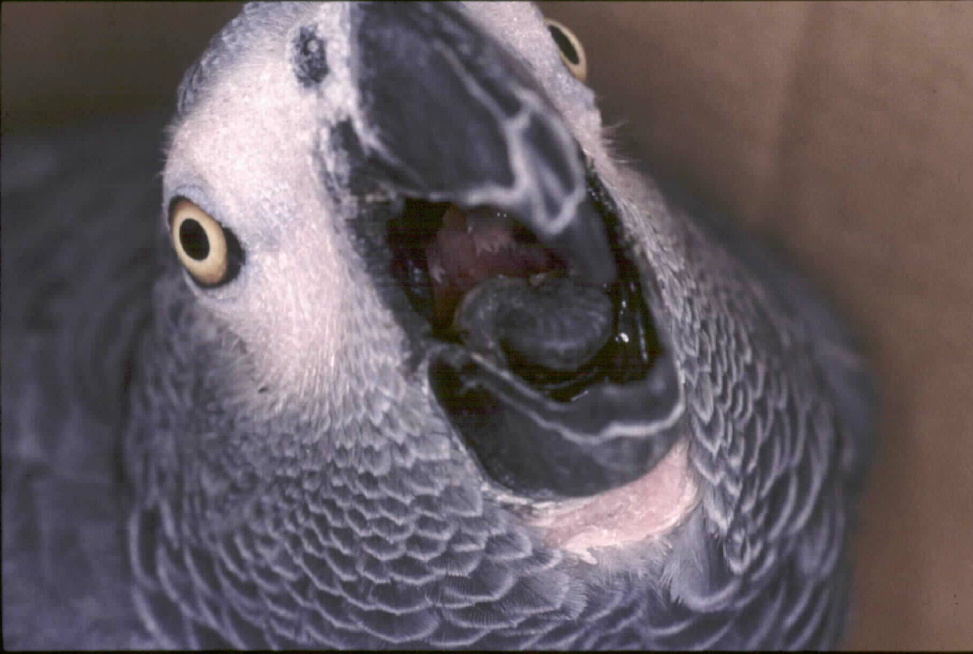




The African Grey
Scienfic Name:- Psittacus erithacus
African Greys are popular pets due to their inteligence with talking and mimicking ability. they have a friendly attitude if hand reared. they are demanding pets and need to be kept entertained.
Always get your African Grey from a respected breeder. Never get your African Grey from a pet shop as it will be likely that birds from different sources are mixed together, making disease transmission a high risk.
Habitat :- They need an environment where they can play and satisfy their intrinsic need to be destructive - provide cardboard boxes and wooden toys for them to play and chew and rope perches to destroy and exercise their feet. It is also important for them to interact with their human family and become involved in family life.
The cage where your African Grey will sleep and feed in should be large enough for the bird to fully extend its wings in all directions and climb around. Provide perches of different shapes and diameters - fruit tree branches are ideal. They will also spend many hours happily stripping away the bark and destroying the perch. The cage itself should be easy to clean and made from stainless steel or brass, but not from galvanized metal, as when chewed this can cause zinc toxicity.
Diet :- In the wild, they eat a wide range of insects, fruit and vetebales, but they are primarily vegetarians. Avoid all-seed diets as seeds such as sunflower, peanuts and pine nuts are low in calcium, vitamins A and D, protein, but are high in fat. This can lead to many nutritional related problems. We recommend a mixture of a complete (suplemented) pelleted diet plus fresh fruit and vegetables, with nuts and seeds only used as treats or as training aids.
Life expectancy :- 40-60 years.
